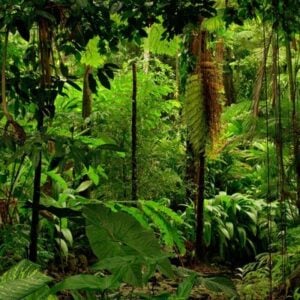The Norwegian Embassy in Brazil has revised its funding strategy to channel more resources directly to Indigenous-led funds rather than through NGOs or multilateral agencies. By 2026, its Indigenous Peoples Programme (NIPP) aims to direct over 90% of its annual budget to Indigenous-led associations and funds. This marks a significant shift from past approaches and reflects growing recognition of the importance of Indigenous autonomy in managing resources and projects.
NIPP, established in 2002, supports initiatives that strengthen Indigenous organizations, secure rights, and promote sustainable land and gender equality. It is one of several channels, alongside the Amazon Fund, through which Norway’s International Climate and Forest Initiative (NICFI) supports Indigenous efforts in Brazil. Direct funding has increased steadily: in 2023, only 13% of NIPP’s $8.7 million budget reached Indigenous organizations, compared with 20% in 2024 and 42% projected in 2025. By 2026, the program expects to channel about $5.5 million directly to Indigenous groups.
According to program manager Kristian Bengtson, the new approach emphasizes long-term projects, stronger capacity building, and more consistent impacts. Embassy officers in Brasília, working with local consultants, conduct workshops with Indigenous organizations to refine project designs and carry out monitoring and evaluation. This hands-on approach is meant to strengthen local resilience and ensure greater effectiveness.
Examples of beneficiaries include the Rio Negro Indigenous Fund (FIRN), which has distributed about 3.4 million reais ($625,000) since 2021, supporting over 20,000 people in Amazonas state. Another is the Rutî Indigenous Fund in Roraima. Leaders such as FIRN coordinator Alessandro dos Santos highlight that direct support has increased Indigenous autonomy, giving organizations greater freedom to design and propose their own projects.
Despite these advances, global funding for Indigenous peoples remains limited. A $1.7 billion pledge made at the 2021 UN climate conference has so far delivered only 10.6% of its resources directly to Indigenous communities. Advocates stress that Indigenous peoples, who safeguard over half of the world’s remaining intact forests, are still overlooked in international funding for conservation and climate action.
Brazil’s Indigenous affairs agency, Funai, noted that direct funding can help protect territories, natural resources, and traditional knowledge while supporting climate adaptation and mitigation. Civil society groups such as Fern argue that Indigenous communities are among the most effective guardians of forests, yet remain marginalized in global finance. Bengtson acknowledged that managing direct funding poses challenges, with monitoring being costly and time-intensive, but emphasized that building trust and personal relationships with Indigenous associations is essential for long-term success.







